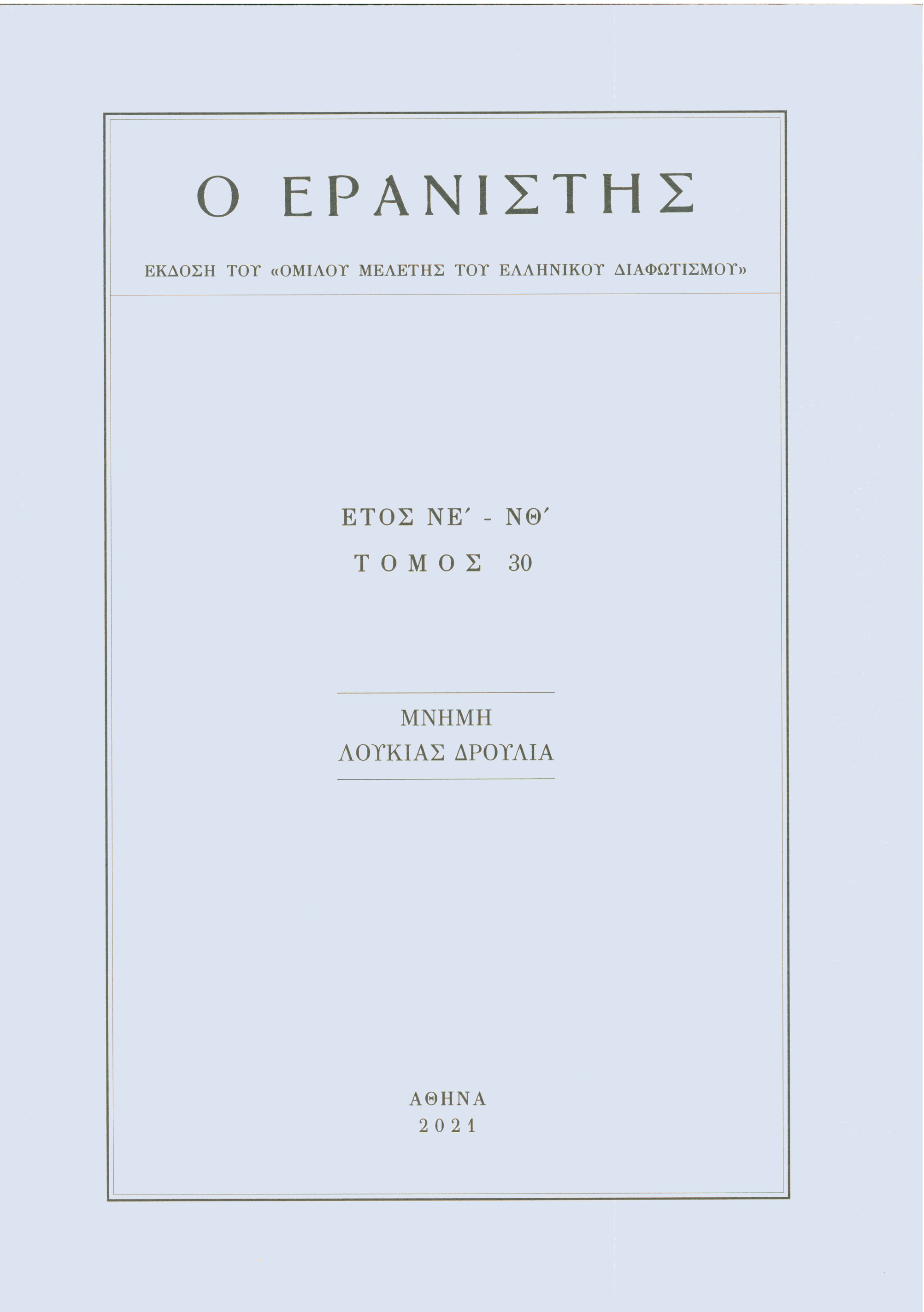Ιδιωτικός και δημόσιος βίος του Γρηγοράκη Σούτσου, Φαναριώτη (1796;-1829)

Abstract
Grégoire Soutzo, Phanariote
Grégoire Soutzo est né en Constantinople vers 1796. Les premiers renseignements sur sa jeunesse nous sont connus par les divers mémoires du comte de Marcellus, qui était consul de France à l’Empire Ottoman les années avant 1821. Ces renseignements portent sur des détails, souvent inconnus et intéressants, de la vie contemporaine et littéraire.
Fin 1819 ou début 1820, Grégoire Soutzo est appelé à Bucarest par son oncle Alexandre N. Soutzo, prince de Moldavie. Il travaille là
comme son secrétaire, il devient membre de la “Société Amicale” [Philiki Etaireia], il prend part aux mouvements révolutionnaires d’Alexandre Hypsilanti. Il s’échappe à Odessa, et à 1822 il va à Paris, où il fait des études de droit et il s’associe aux circuits philhelléniques.
Au printemps de 1826 il vient en Grèce, et il sert comme juge, et, avec ses collaborateurs il prépare l’organisation juridique du nouvel état. Capodistrias le nomme membre de “Panhellénion” et lui confie des fonctions juridiques, mais leur collaboration est suspendue à cause des comportements amoureux de Soutzo qui ne sont pas acceptés par les mæurs de l’époque. Il meurt pendant l’épidémie de typhus à Nauplie en Octobre 1827.
Article Details
- How to Cite
-
Politis, A. (2024). Ιδιωτικός και δημόσιος βίος του Γρηγοράκη Σούτσου, Φαναριώτη (1796;-1829). The Gleaner, (30), 637–662. https://doi.org/10.12681/er.36137
- Section
- Μελετήματα

This work is licensed under a Creative Commons Attribution-NonCommercial-ShareAlike 4.0 International License.
The copyright for articles in this journal is retained by the author(s), with first publication rights granted to the journal. By virtue of their appearance in this open access journal, articles are free to use (with the exception of the non-granted right to make derivative works) with proper attribution for non-commercial uses. The Greek Society for Eighteenth-Century Studies (ΟΜΕΔ) retains the worldwide right to reproduce, display, distribute, and use articles published in THE GLEANER in all formats and media, either separately or as part of collective works for the full term of copyright. This includes but is not limited to the right to publish articles in an issue of the Journal, copy and distribute individual reprints of the articles, authorize reproduction of articles in their entirety in another ΟΜΕΔ’s publication, and authorize reproduction and distribution of articles or abstracts thereof by means of computerized retrieval systems

